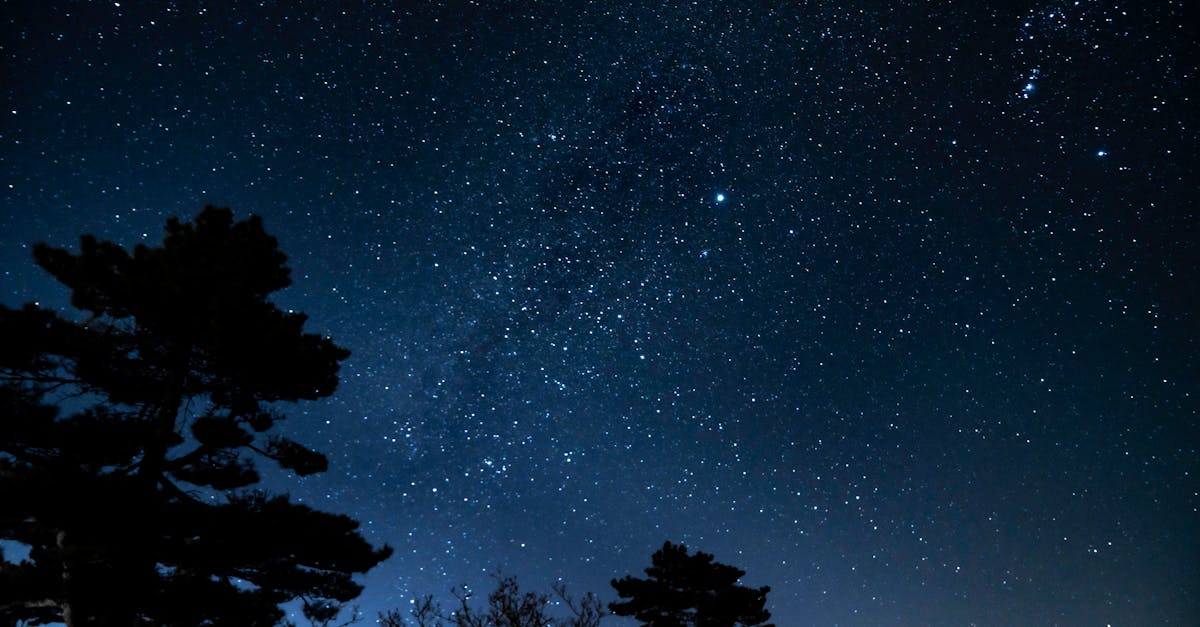
## The Beekeeper’s Compass
The scent of beeswax and damp stone clung to Adelheid like a second skin. Dust motes danced in the single shaft of sunlight piercing the apothecary’s window, illuminating rows of labeled jars. Not remedies for coughs or fevers, though. Hers held powdered meteors, crushed lapis lazuli, and the iridescent scales of river fish—tools for charting what was *above*, not healing what ailed.
Outside, Wittenberg simmered. Not with plague, exactly. With suspicion. The air tasted like burnt offerings and whispered accusations.
Old Man Hemlock had been the first. Accused of carving idols, devils in wood. Adelheid knew better. Hemlock carved the constellations, each piece a precise miniature of the heavens as they *should* be. He wasn’t making gods; he was remembering them.
She touched the worn leather of her astronomical atlas, its pages filled with painstakingly recreated star charts. Fragments. Echoes. The fall of the cathedral hadn’t just been stone crumbling to dust; it had shattered the celestial understanding painstakingly built over centuries. The oral teachings, passed down through her lineage of *Weisenfrauen*—wise women—were fading too, fractured like glass.
The largest piece of the puzzle, though, lay in reconstructing the maps. Not just *where* things were, but *how* they moved. Because alchemy wasn’t about transmuting lead to gold. It was about understanding the dance.
A shadow fell across her workbench.
“Working late again, Frau Adelheid?”
Kaspar Bremer. Astronomer to the Elector. Precise, immaculate in his dark velvet doublet, carrying the scent of ink and authority. He’d arrived six months ago, ostensibly to survey the land for optimal crop yields. Adelheid knew he was charting something else entirely.
“The stars don’t keep office hours, Herr Bremer.” She didn’t look up from grinding a sample of pyrite.
“Efficient use of time, then.” He gestured to the jars on her shelves. “A curious collection. Not exactly standard apothecary fare.”
“I cater to a specific clientele.” She measured the pyrite carefully. “Those who look beyond the earth.”
He chuckled, a dry rasping sound. “A romantic pursuit. Though I find the earth provides ample fascination. Yields, seasons…predictable patterns.”
“Predictability isn’t always truth.” She met his gaze, cool and unwavering. “Sometimes the patterns are disrupted.”
“Disruptions require investigation. Control.” He tapped a rolled parchment tucked under his arm. “I’ve been studying the local apiaries. Remarkable resilience, those bees. Their hives…they seem attuned to something beyond mere pollen counts.”
Adelheid’s fingers tightened around the pestle. He was circling closer, probing. The bees were vital. Not for honey—though that was a blessing during the lean winters—but for their connection to the forest, to the ancient laws that governed growth and decay. The knowledge was held by the vintners, the keepers of the hives.
“The bees follow the forest’s rhythm,” she said carefully. “Nothing more.”
He raised an eyebrow. “A rhythm easily quantified, I assure you. Precise locations of flowering plants, optimal harvesting times…data.”
“Some things aren’t data.” Adelheid turned back to her work, dismissing him. “They are…felt.”
He didn’t leave immediately.
“The trials,” he said, his voice low. “Hemlock’s testimonies were…peculiar. Filled with botanical references.”
“Old man ramblings,” she countered, though her pulse quickened. Hemlock hadn’t been talking about flowers; he’d been encoding the celestial movements, hiding them in plain sight.
“He spoke of ‘vernal equinox blooms’ coinciding with specific planetary alignments,” Bremer continued. “And ‘honeycomb constellations’ pointing towards…’witch marks.'”
“Superstition.”
“Perhaps. Or perhaps a key.” He paused, his eyes piercing. “He mentioned the vintners. Said they held ‘the true nectar,’ a knowledge tied to the land itself.”
Adelheid slammed the pestle onto the workbench, startling him. “Leave me be, Herr Bremer.”
He offered a curt bow. “As you wish, Frau Adelheid. But remember…knowledge unclaimed becomes power lost.”
The door clicked shut behind him, leaving silence thick with unspoken threats.
She reached for a small, intricately carved wooden box. Inside lay dried petals of wolfsbane, star anise, and a single, perfectly preserved honeycomb cell. Hemlock’s final gift. A map within a map.
The next day, the whispers about the trials intensified. Elsa Schmidt, a young woman accused of poisoning her husband, was brought before the magistrate. Her testimony wasn’t about herbs or potions; it was a litany of flowering times, the specific bloom dates of meadowsweet and belladonna. Each date corresponded to a planetary conjunction.
Adelheid found herself drawn to the courtroom, hidden among the onlookers. Elsa’s eyes met hers, a desperate plea for understanding.
“The blue flax bloomed early this year,” Elsa said, her voice trembling. “Like a warning.”
The magistrate scoffed. “A warning of what, woman? Your guilt?”
“Of imbalance,” Elsa corrected. “The heavens are shifting. The earth is responding.”
Bremer stood near the magistrate, his expression unreadable. He was watching Elsa carefully, not as a judge, but as an observer. A collector.
After the session, Adelheid followed Bremer back to his observatory, a stark stone tower overlooking Wittenberg. She found him charting the movements of Jupiter and Saturn on an enormous celestial globe.
“You’re decoding Hemlock’s language,” she said, stating the obvious.
He didn’t look up. “I’m quantifying patterns. Establishing control.”
“You believe you can control the heavens?”
“I believe I can understand them. And understanding allows prediction.” He pointed to a series of intricate diagrams overlaid on the globe. “The apiaries…the vintners…they possess a unique knowledge of these patterns. Specifically, the timing of first blooms.”
“They follow the forest law,” Adelheid said, her voice firm. “It’s not a pattern to be controlled; it’s a balance to be respected.”
“A quaint notion. But impractical.” He turned, his eyes cold. “The Elector is concerned about diminishing yields. Unexplained crop failures. He requires solutions, not folklore.”
“You’re looking at it wrong,” Adelheid said. “The failures aren’t random; they’re a consequence. The cathedral fell for a reason.”
“A structural flaw, likely.”
She shook her head. “The cathedral was a focal point. A grounding for the celestial energy. Its destruction disrupted the flow.”
He laughed, a harsh grating sound. “You speak of magic, Frau Adelheid.”
“I speak of resonance,” she corrected. “The earth responds to the heavens. And when that resonance is broken…things fall apart.”
She pulled a small piece of honeycomb from her pocket, offering it to him. “The bees understand this resonance. The vintners know how to listen.”
He examined the honeycomb skeptically. “A sugary confection. Nothing more.”
“Look closer,” she urged. “It’s not just honey; it’s a map.”
He reluctantly took the honeycomb, holding it to the light. The cells weren’t uniform; some were larger, some smaller, arranged in a precise pattern.
“What am I looking at?” he asked, his voice grudgingly curious.
“The constellations,” Adelheid said. “As they should be.”
He traced the pattern with his finger, a flicker of understanding in his eyes.
“Hemlock…he encoded the entire celestial sphere within these cells?”
“He tried to preserve what was lost,” Adelheid said. “But the map is incomplete.”
“Where are the missing pieces?”
She hesitated, then said, “The oldest hives. Deep in the Black Forest. The vintners who have kept the ancient laws for generations.”
“And you know where to find them?”
Adelheid nodded. “I have contacts.” She looked at Bremer, gauging his intentions. “But they won’t share their knowledge with someone who seeks to control it.”
Bremer stared at her for a long moment, his expression unreadable. “Then I suppose,” he said slowly, “we have a common goal.”
He rolled up the parchment containing his astronomical charts. “We will journey to the Black Forest, Frau Adelheid. And we will find these missing pieces.”
The forest loomed ahead of them, a dark and ancient presence. The air hung heavy with the scent of damp earth and decaying leaves. They travelled for days, following a network of winding trails, guided by Adelheid’s contacts—a secretive community of vintners and herbalists.
Each hive they visited held a piece of the puzzle—intricately carved wooden panels depicting constellations, fragments of ancient oral teachings encoded in botanical verses. But the vintners were wary, sharing their knowledge grudgingly, watching Bremer with suspicion.
One evening, they reached the oldest hive in the forest—a massive structure built around a sprawling oak tree. The vintner who guarded it, an old woman named Greta, was the most cautious of all.
“You seek to understand the heavens,” Greta said, her voice raspy with age. “But your heart is cold, Herr Astronomer.”
“I seek to restore balance,” Bremer countered. “To prevent further disruption.”
Greta shook her head. “Balance is not a thing to be imposed; it is a rhythm to be followed.”
She led them inside the hive, revealing a vast chamber filled with ancient artifacts—scrolls, wooden panels, and intricately carved maps. In the center of the chamber stood a massive celestial globe—larger than any Adelheid had ever seen.
“This is the Weaver’s Globe,” Greta said. “It holds the complete map of the heavens, as they were meant to be.”
But the globe was broken—several pieces were missing.
“The cathedral’s fall shattered these fragments,” Greta explained. “They scattered across the land.”
“Where are they?” Bremer demanded.
Greta pointed to a series of cryptic verses inscribed on the walls. “They are hidden within the forest itself—guarded by those who understand its laws.”
Adelheid realized that Greta wasn’t just protecting the fragments; she was testing them.
“We must prove ourselves worthy,” she said, turning to Bremer. “By following the forest’s rhythm.”
Over the next few days, they embarked on a series of challenges—deciphering botanical codes, navigating treacherous paths guided by the stars, and understanding the delicate balance of the forest ecosystem. Bremer initially struggled, relying on his scientific methods and dismissing the vintners’ traditional knowledge. But slowly, he began to understand—to feel—the forest’s rhythm.
Finally, they found the missing fragments—hidden within ancient trees, guarded by mythical creatures and encoded in botanical verses. They pieced the Weaver’s Globe together—revealing a complete map of the heavens, as they were meant to be.
But as they examined the globe, Adelheid realized something was wrong.
“This isn’t just a map of the heavens,” she said, her voice trembling. “It’s a key.”
“A key to what?” Bremer demanded.
Adelheid pointed to a series of constellations aligned in a specific pattern. “To unlocking the earth’s energy.”
“You mean…alchemy?”
Adelheid shook her head. “Not alchemy as we know it. A deeper understanding of the earth’s resonance.”
She realized that the cathedral’s fall wasn’t just a disruption; it was a catalyst—a signal to unlock the earth’s hidden potential.
But as they prepared to unravel this mystery, a shadow fell over them—a group of soldiers led by the Elector’s most trusted advisor.
“You have been accused of heresy,” the advisor said, his voice cold. “Of consorting with witches and plotting against the Elector.”
Adelheid realized that Bremer had betrayed them—he’d used their knowledge to gain the Elector’s favor.
“You sought control,” she said, her voice filled with anger. “Not understanding.”
Bremer smirked. “The Elector understands power. And he will not allow this knowledge to fall into the wrong hands.”
A struggle ensued—Adelheid and Bremer fighting for control of the Weaver’s Globe. In the chaos, the globe shattered once again—scattering its fragments across the forest.
Adelheid realized that they had failed—they hadn’t unlocked the earth’s potential; they had unleashed its chaos.
But as she looked around the forest, she realized that the fragments weren’t lost—they were spreading. The knowledge was being disseminated—shared among the vintners, scattered across the land.
The earth’s resonance was awakening—a force that couldn’t be controlled, only understood.
Adelheid knew that the future was uncertain—but she also knew that the forest would endure. The rhythm would continue. And the earth’s potential would unfold—in ways they couldn’t imagine.


